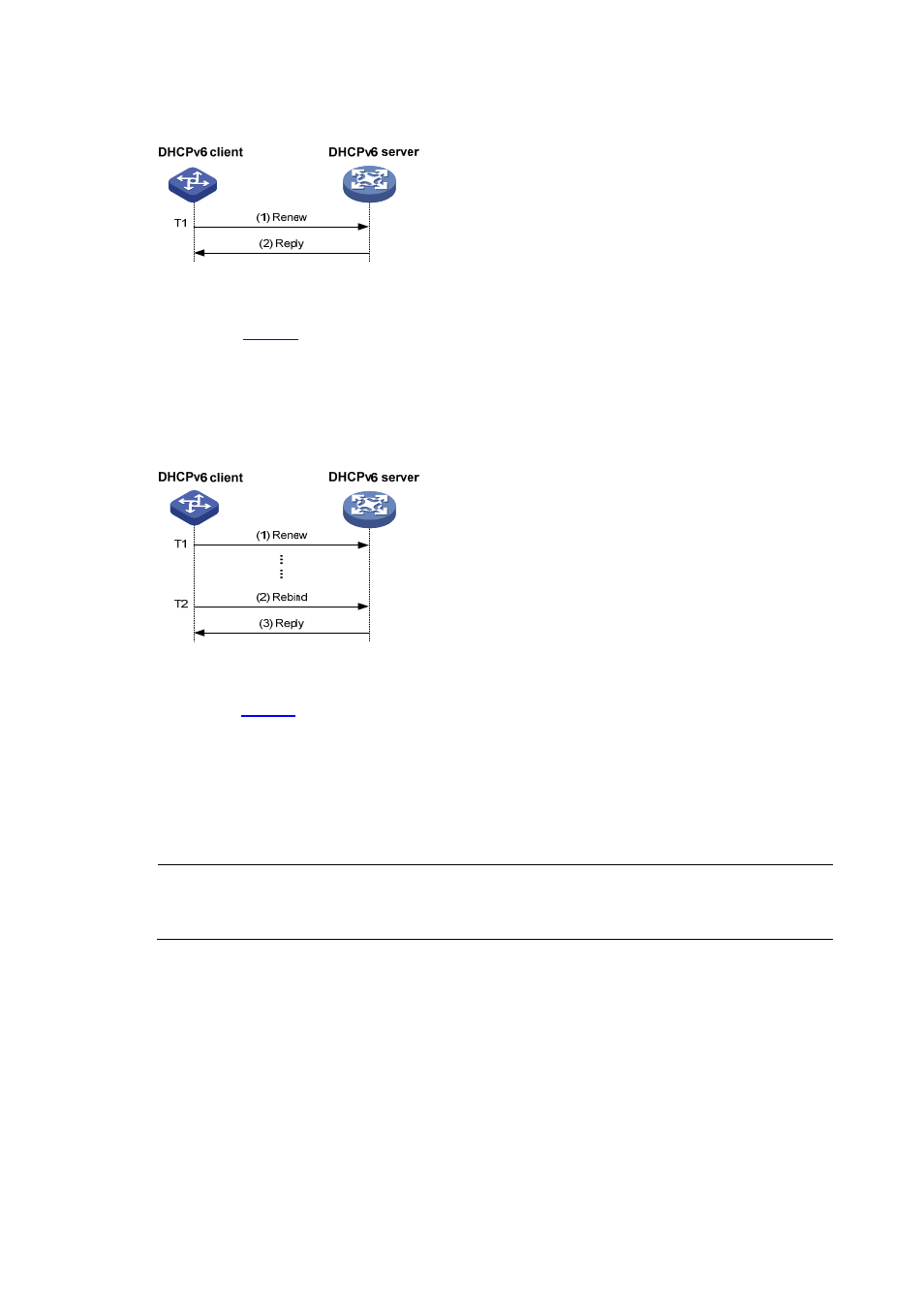Stateless dhcpv6 configuration, Introduction – H3C Technologies H3C SecPath F1000-E User Manual
Page 82

3
Figure 3 Using the Renew message for address/prefix lease renewal
As shown in
, at T1, the DHCPv6 client unicasts a Renew message to the DHCPv6 server that
assigned the IPv6 address/prefix to the DHCPv6 client. The recommended value of T1 is half the
preferred lifetime. Then the DHCPv6 server responds with a Reply message, informing that the lease is
renewed or not.
Figure 4 Using the Rebind message for address/prefix lease renewal
As shown in
, if the DHCPv6 client receives no response from the DHCPv6 server after sending
out a Renew message at T1, it multicasts a Rebind message to all DHCPv6 servers at T2 (that is, when
80% preferred lifetime expires). Then the DHCPv6 server responds with a Reply message, informing that
the lease is renewed or not.
If the DHCPv6 client receives no response from the DHCPv6 servers, the client stops using the
address/prefix when the valid lifetime expires.
NOTE:
For details about the valid lifetime and the preferred lifetime, refer to
IPv6 Basics Configuration in the IP
Services Volume.
Stateless DHCPv6 Configuration
Introduction
After obtaining an IPv6 address/prefix, a device can use stateless DHCPv6 to obtain other configuration
parameters from a DHCPv6 server. This application is called stateless DHCPv6 configuration.
